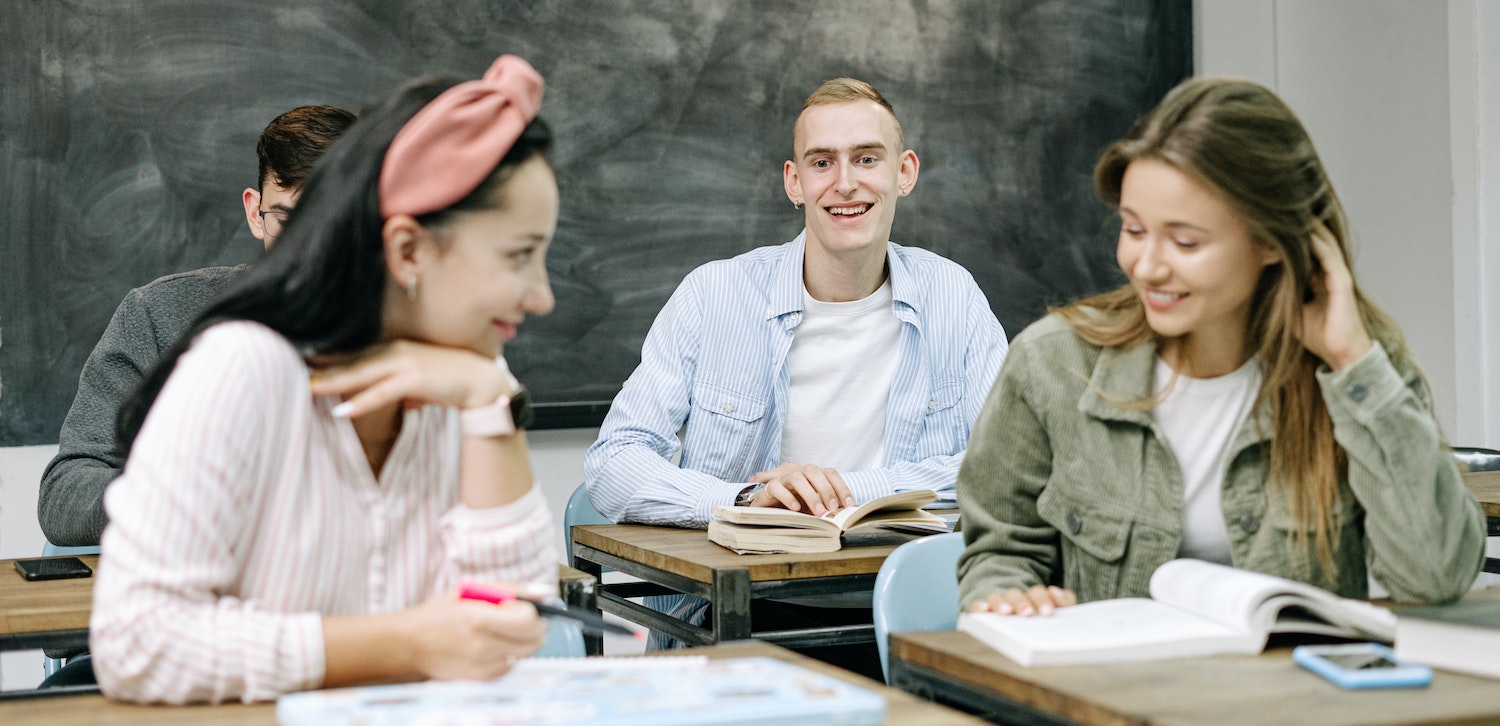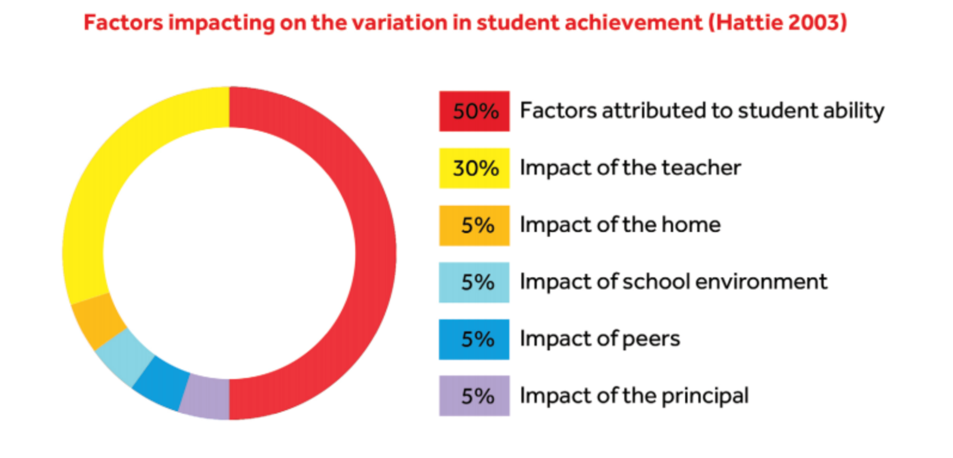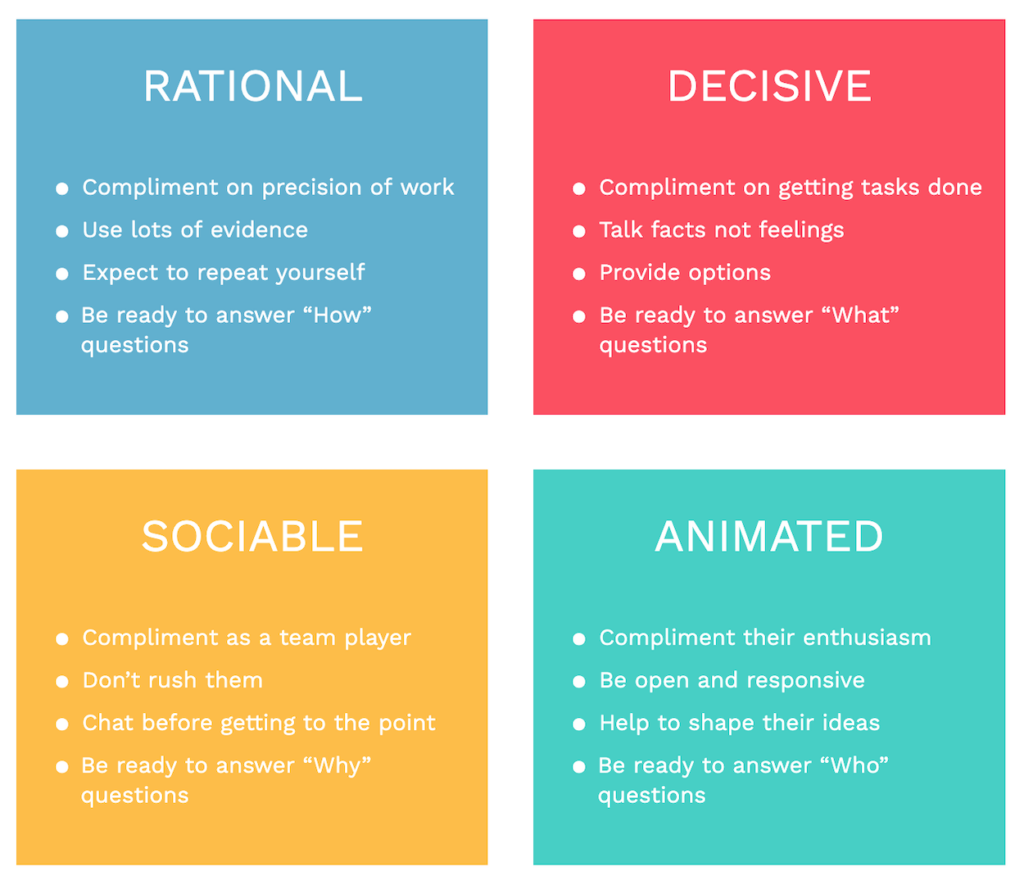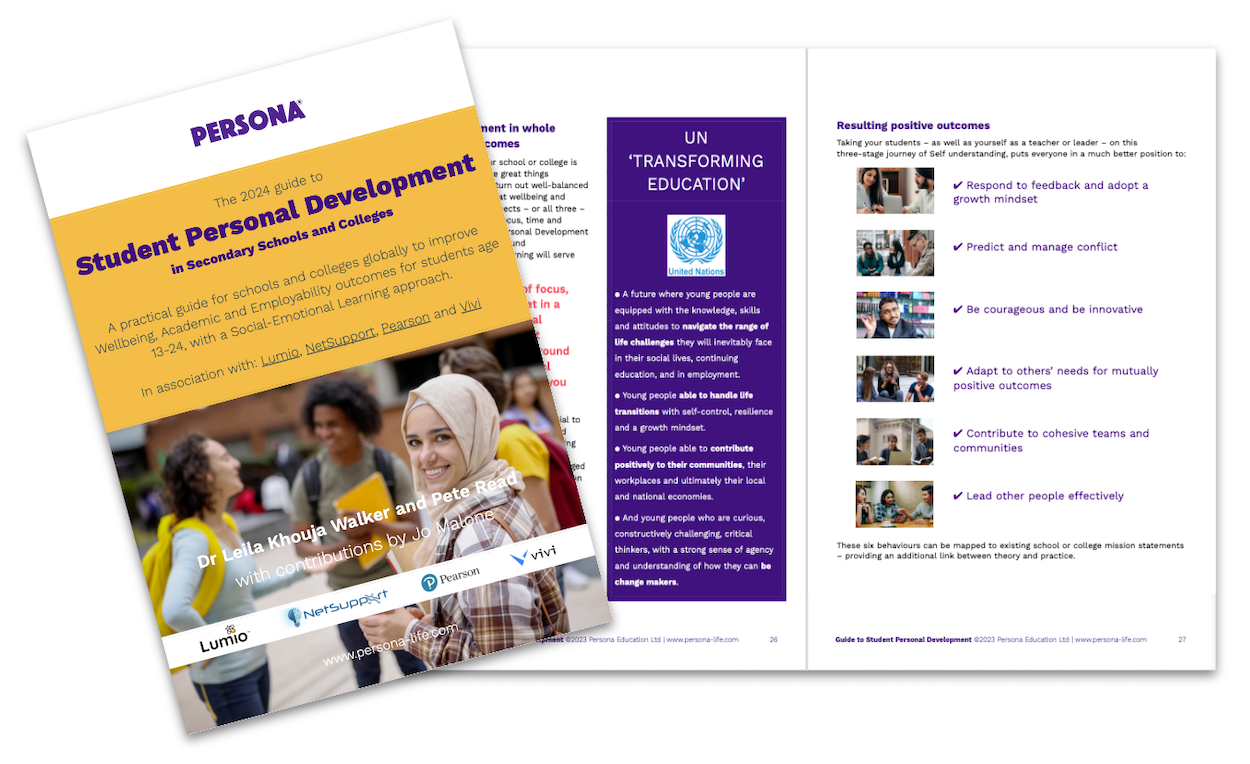How understanding students’ personality styles can inform pedagogy and raise school attainment

27-Aug-20
By Dr Leila Khouja Walker, Chief Product Officer
For nearly two decades, research1 has indicated that almost half of the factors contributing to a student’s academic success revolve around relationships with others – particularly teachers and to a lesser extent peers – as well as the actual school environment.
 .
.
This should come as no surprise. Think about it. Education in a school is often described as the transfer of knowledge, usually between teachers and their students, but also between students. And not forgetting in some cases, from student to teacher. However, regardless of the direction of transfer, the conduit for knowledge is more often than not ‘communication’. And for effective transfer to occur, a good understanding of how best to communicate is required – whether verbal or non-verbal, written or spoken. But where do we start?
First, we must understand how people ‘see’ and ‘hear’ us – we must get to know ourselves from the perspective of others. Second, we must understand how others wish to be ‘seen’ or ‘heard’.
In other words, by gaining insight into our own mix of personality styles, and that of others, our ability to communicate effectively is greatly increased. We are able to make more informed choices about how we communicate, what we communicate, when we communicate and to whom we should communicate.
Understanding pedagogy through the lens of personality styles
Many personality insight systems have been developed over the years – going back as far as Hippocrates who came up with the first around 400 BC. Many of the most enduring and robust systems – including Hippocrates’ – are based on four sets of related characteristics, each of which we exhibit to a greater or lesser extent, influencing both how other people perceive and interact with us, and how we ourselves think, communicate and behave.
As teachers we often apply the default belief that our students have learning preferences. When planning lessons, we respond by providing a mix of learning activities – knowing some activities will suit some students better than others – but by offering a mix we hope to cover all preferences fairly. Seems a sensible approach.
Alternatively, we could take the time to look more closely at why some students may prefer different pedagogical approaches to others. A glimpse into a student’s mix of personality styles (their ‘Persona’) will provide teachers with insights not only into a student’s communication preference, but the rationale behind this and how it relates to effective pedagogy.
Knowing why one student likes to learn by themselves, surrounded by books full of facts, while another prefers in-person input by asking someone else to explain, for example, can help us better communicate with students and respond to their individual learning preferences.
Persona Education has developed a unique set of four personality styles (Decisive, Animated, Rational and Sociable) based on assertiveness and responsiveness variables, to help teenagers better understand themselves and others. Its web app, Persona Life Skills, is the only personality insights e-learning platform built specifically for teenagers.
Using its unique personality insights framework, as well as data from meta-research, Persona Education has created pedagogical guidance to help teachers better understand their students, and plan lessons that best suit their preferences. Below is an extract (the full version is integrated into the teacher guidance in the app):

Applying the pedagogy of personality styles in practice
You may already have a good idea of which main styles are most evident in each of your students, just by being mindful of which activities they seem to like... and which activities they find most challenging. If so, be open with them, show that you are understanding of their preferences, and use the communication guidance above to help steer your teaching of each individual.
If you would like to find out more about each of your students’ unique mix of personality styles and apply the most effective communication approach with confidence, Persona Education offers free access to its Persona Life Skills online platform, in which students can answer a set of questions to reveal the full picture.
1 Hattie (2003) https://research.acer.edu.au/cgi/viewcontent.cgi?article=1003&context=research_conference_2003




